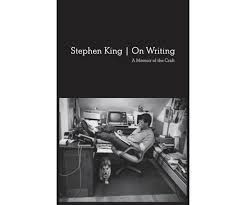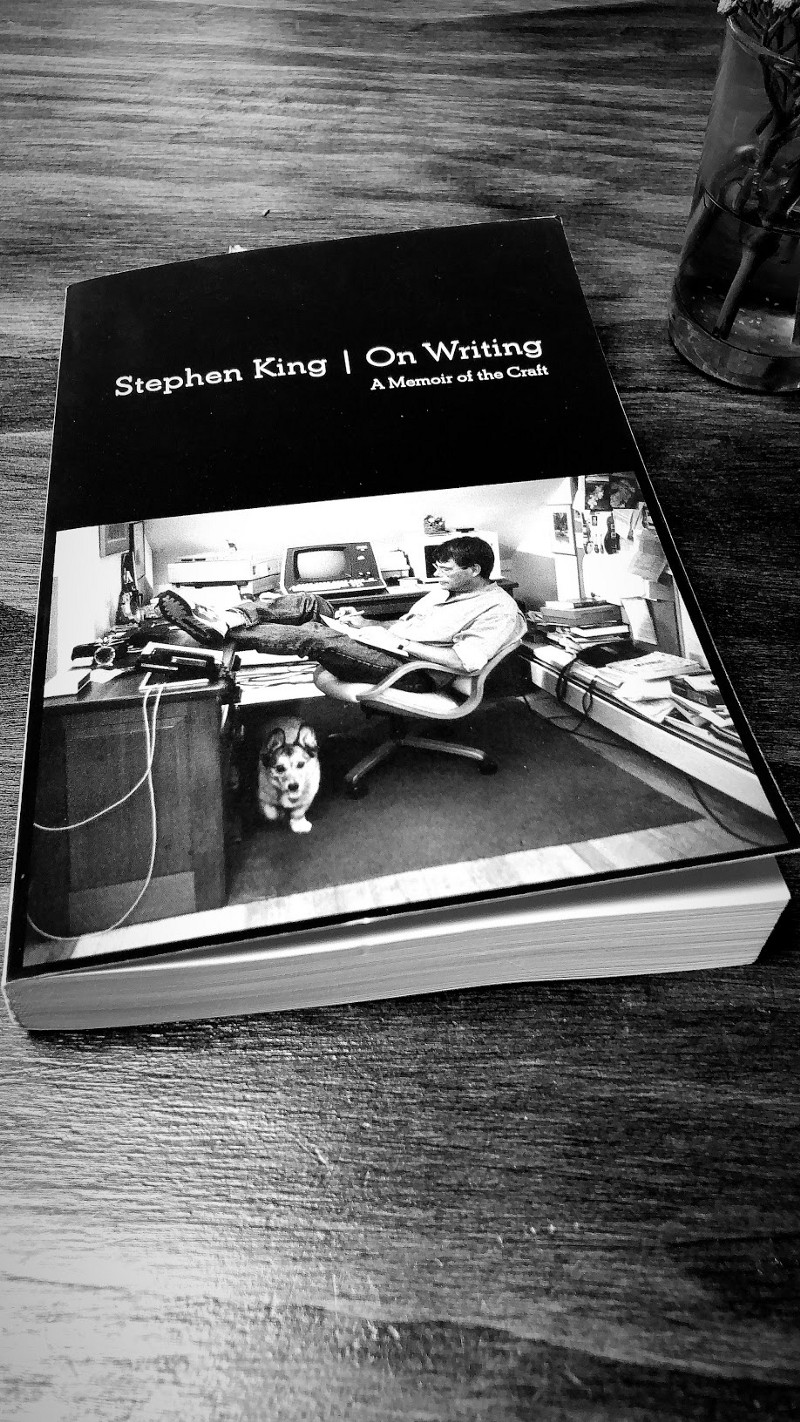On Writing: A Memoir of the Craft

Stephen King is a magician with a pen for a wand. He is a fiction author with more than 50 bestselling books to his name. On Writing opens with a little autobiography that charts the path his life took that made him the writer he is today. He talks about the general state of poverty and helpness that he went through not just as a child raised by a single mother, but also later as a writer with a laundromat job to pay the bills.
He recounts his story from,
“Four stories. A quarter apiece. That was the first buck I made in this business.”
all the way to…
“The paperback rights to Carrie went to Signet Books for four hundred thousand dollars.”
and every word in between is worth reading to understand what goes into making of a writer. Especially a successful one. He also recounts his struggle with alcoholism and drug abuse, with some memorable passages like these:
…and telling an alcoholic to control his drinking is like telling a guy suffering the world’s most cataclysmic case of diarrhea to control his shitting.
all the way to this:
In the spring and summer of 1986 I wrote The Tommyknockers, often working until midnight with my heart running at a hundred and thirty beats a minute and cotton swabs stuck up my nose to stem the coke-induced bleeding.
and this:
At the end of my adventures I was drinking a case of sixteen-ounce tallboys a night, and there’s one novel, Cujo, that I barely remember writing at all.
Shudders. Down the spine. Let’s move to the art of writing itself.
The second, more meatier part of the book talks about how to write well. You may have heard the commandments before — no adverbs, no passive voice, in fact, just no unnecessary words at all. Putting minutiae aside, here’s the basic premise: you must not come lightly to the blank page.
But it’s writing, damn it, not washing the car or putting on eyeliner. If you can take it seriously, we can do business. If you can’t or won’t, it’s time for you to close the book and do something else.
Writing is refined thinking. Good writing is often about letting go of fear and affectation. Finally, to write well, you will have to read a lot.
“What do you write about? Write about anything you damn well want, as long as you tell the truth.The job boils down to two things: paying attention to how the real people around you behave and then telling the truth about what you see.”
“There are a lot of bells and whistles that you can learn in a standard writing course —onomatopoeia, incremental repetition, stream of consciousness, interior dialogue, changes of verbal tense, the sticky question of back story (how do you get it in and how much of it belongs), theme, pacing, and a dozen other topics — but remember, first and foremost, good fiction writing is about the story. Everything else comes after.”
Writing and literature classes can be annoyingly preoccupied by (and pretentious about) theme, approaching it as the most sacred of sacred cows, but (don’t be shocked) it’s really no big deal. Good fiction always begins with story and progresses to theme; it almost never begins with theme and progresses to story. But once your basic story is on paper, you need to think about what it means and enrich your following drafts with your conclusions. To do less is to rob your work (and eventually your readers) of the vision that makes each tale you write uniquely your own.
Writing fiction is like unearthing a fossil. Start with your characters and see where they take you. You may need everything from a shovel to a toothbrush, but let the fossil emerge from the ground — you won’t know if it’s a small fish or a T. Rex. until much later.
Finally, on the topic of revising the work—how much and how many drafts? “Two drafts and a polish” is what’s worked best for Mr. King. Write the first draft with the door closed. The second one with the door open — show it to your Ideal Reader (this is that one person you write your fiction for), and see what works and what doesn’t. Send a few copies to your friends. And most importantly, “kill your darlings, even when it breaks your egocentric little scribbler’s heart, kill your darlings.”
“You need to revise for length. Formula: 2nd Draft = 1st Draft minus 10%.”
The third section describes the conditions under which this book itself was written — King was hit by a minivan during the time he was working on the book. The paramedics later told him that it was nothing short of a miracle that he survived. Only a few weeks later, he got back to writing On Writing, and in a way, this is what helped him recover more than any Physical Therapy (or P.T., or Pain and Torture, as King puts it.)
“Some of this book — perhaps too much — has been about how I learned to do it. Much of it has been about how you can do it better. The rest of it — and perhaps the best of it — is a permission slip: you can, you should, and if you’re brave enough to start, you will. Writing is magic, as much the water of life as any other creative art. The water is free. So drink. Drink and be filled up.”
There are books that change your modus operandus. They change your life or work. Read this book, and you will never think about writing the same way.
This is #32 in a series of book reviews published weekly on this site.
